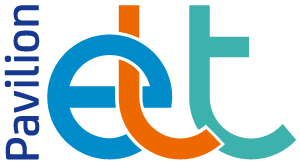In this issue we have included teachers who write for us, review materials for us, are regular readers and potential contributors. Will your story be next?
Iuliia, Italy
 Growing up in the post-Soviet space, little did I know that a childhood dream of becoming a teacher could turn into an exciting life-long journey that would get me to meet and collaborate with people from all over the world and in different countries. I have worked in the role of a teacher and academic and project manager in Russia, teacher trainee in Spain and England, a Fulbright teaching assistant in the USA, and I am currently a primary and secondary teacher at the British Council in Rome, Italy. Each role has been a kaleidoscope of learning, which broadened my toolkit as a teacher and instilled in me adaptability, flexibility and curiosity – the qualities that became my compass in the ever-evolving field of education.
Growing up in the post-Soviet space, little did I know that a childhood dream of becoming a teacher could turn into an exciting life-long journey that would get me to meet and collaborate with people from all over the world and in different countries. I have worked in the role of a teacher and academic and project manager in Russia, teacher trainee in Spain and England, a Fulbright teaching assistant in the USA, and I am currently a primary and secondary teacher at the British Council in Rome, Italy. Each role has been a kaleidoscope of learning, which broadened my toolkit as a teacher and instilled in me adaptability, flexibility and curiosity – the qualities that became my compass in the ever-evolving field of education.
Over the years, the focus of my professional interests has changed in response to the teaching environment I found myself in and the challenges it presented. While working towards the DipTESOL qualification, I was very much into learning about phonology, its importance for language learning and implications for teaching, and I was a huge fan of Krashen’s theory of second language acquisition. There used to be a popular joke in my household about me ‘having a crush’ on Stephen Krashen.
The 2020 pandemic brought about the urgent need to move our teaching online and with that to develop the digital skills required for survival. At the time, I was teaching primary learners aged five to seven, and my main concern was how to support their social and emotional learning within the digital realm. That made me reflect on my teaching and identify the activities that could be transferred or adapted to be used online with as much success as they would in face-to-face teaching. Luckily, there were plenty that promoted self- and social awareness, responsible decision making, self-management and building relationship skills. And it turned out that storytelling, mindfulness and creativity play a huge role in all that, too – so that’s where my professional development focus went.
Since we have come back into the classroom, my focus shifted again and this time towards adapting photocopiable materials to be used without printing or copying. That might seem illogical because they are called ‘photocopiables’ for a reason, but if we pay more attention to how many handouts end up either in a rubbish bin or a scrap paper drawer, making an effort to develop a ‘greener’ approach actually makes sense. And although it might require more creativity at the start, it takes next to nothing to become a teacher’s second nature.
What next? AI is bringing a lot of exciting opportunities for both learning and teaching, so I am looking into that at the moment.


